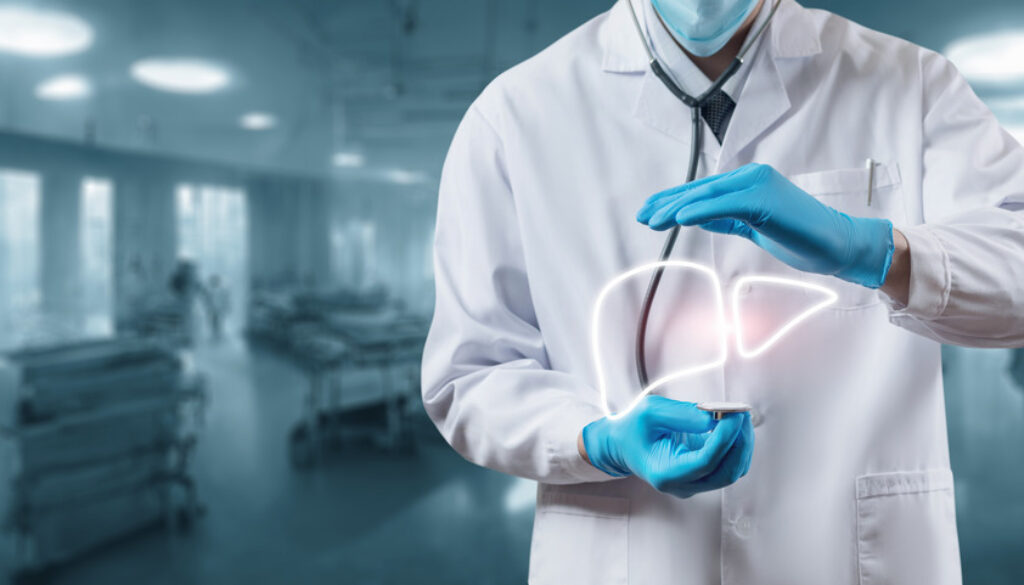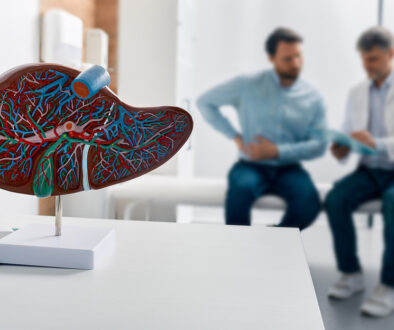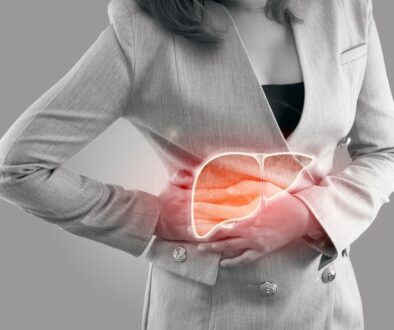5 Ways Our Center of Excellence Helps Those With Liver Diseases
Do you realize how much your liver does for your body? Many don’t realize the importance of this large organ, which not only filters toxins out of the blood but is also vital to digestion. Liver diseases such as hepatitis and cirrhosis can have devastating effects on your overall health.
Our Center for Liver Diseases is recognized as a Center of Excellence, and it provides extensive care and treatment to those with diseases in their liver. We’ll take a closer look at our Center for Liver Diseases, review some of the most common diseases, and provide tips on how to keep your liver healthy.
5 Ways Our Center of Excellence Helps Those With Liver Disease
1. It Provides All the Resources You Need in One Place at Our Center for Liver Diseases
We’ve combined the experience, knowledge, and expertise of leading physicians to create a Center of Excellence to help ensure our patients get the most comprehensive state-of-the-art care available.
2. It Enables Us to Work Seamlessly With Other Members of Your Healthcare Team
Your liver is vital to so many of your body’s systems. An issue with your liver can have a “domino” effect, causing a multitude of health issues. For this reason, it’s so important that we work with all members of your healthcare team so you can have a smooth continuum of care. These team members may include oncologists, radiologists, or even surgeons.
3. Our Physicians Can Treat a Wide Range of Liver Diseases
Our providers have extensive experience in treating conditions such as:
- Non-Alcoholic Fatty Liver Disease and NASH
- Alcohol Associated Liver Diseases
- Viral Hepatitis (A, B, C, D, E, and Covid 19)
- Cholestatic Autoimmune Liver Diseases (Autoimmune hepatitis, Primary Biliary Cholangitis (PBC), Primary Sclerosing Cholangitis (PSC))
- Drug-induced liver injury and toxicity
- Cirrhosis and its complications
- Inherited liver disorders (Primary Hemochromatosis, Wilson’s disease and Alpha antitrypsin deficiency, LAL)
4. We Work Closely With Leading Transplant Teams
If a liver transplant is needed, then we work with the liver transplantation centers at Duke University Medical Center and the University of North Carolina.
5. We Work With Patients to Help Maintain Healthy Liver Function
Did you know that a healthy lifestyle can go a long way toward helping your liver? Exercise and nutrition can help stabilize or even reverse some conditions such as non-alcoholic fatty liver disease.
We’ll work closely with you to develop a plan tailored specifically for you that will help.
What Does the Liver Do?
As we mentioned earlier, the liver is not only vital in digestion but it’s also needed to filter toxins out of your blood. In addition, the liver:
- Stores vitamins and minerals
- Produces bile, which aids in digestion
- Makes essential proteins that are needed for blood clotting
- Metabolizes fats, carbohydrates, and proteins
- Removes toxins such as ammonia and drugs from the body
- Helps to fight infections
- Makes albumin and other proteins such as hormones
What Are 10 Symptoms of Liver Disease?
While symptoms may vary from patient to patient, the warning signs of liver diseases typically include:
- Abdominal pain and discomfort-typically on the right upper side
- Easy bruises
- Nausea and vomiting
- Changes in stool color or urine
- Jaundice
- Abdominal swelling
- Fatigue or tiredness
- Muscle wasting
- Confusion, sleepiness, or irritability
- Body itching
What Are the Different Types of Liver Diseases?
A few of the most common liver diseases include:
- Non-Alcoholic Fatty Liver Disease and NASH
- Alcohol Associated Liver Diseases
- Viral Hepatitis (A, B, C, D, E, and Covid 19)
- Cholestatic Autoimmune Liver Diseases (Autoimmune hepatitis, Primary Biliary Cholangitis (PBC), Primary Sclerosing Cholangitis (PSC)
- Drug-induced liver injury and toxicity
- Cirrhosis and its complications
- Inherited liver disorders (Primary Hemochromatosis, Wilson’s disease, and Alpha antitrypsin deficiency, LAL)
- Liver Failure
- Acute or chronic liver transplant rejection
How Do You Diagnose Liver Diseases?
Typically, there are a series of tests that can detect liver problems. These can include blood tests, a liver biopsy, an ultrasound, MRI, liver elastography, or CT. Liver disease must be detected early, because, in its earliest stages, it may not show any symptoms.
If untreated, liver disease can lead to liver cancer or liver failure.
How Is Liver Disease Treated?
The treatment for liver disease will depend on the type of disease and the severity of the damage. Some common treatments include:
- Medications
- Surgery
- Liver transplant either with cadaveric or living-related liver donations
- Other procedures such as:
- Paracentesis,
- BRTO
- TIPS
- Shunt surgery
How to Prevent Liver Disease
There are some things you can do to help prevent liver disease, including:
- Avoid excessive alcohol consumption
- Eat a healthy diet
- Get regular exercise
- Get vaccinated for hepatitis
- Manage any chronic conditions, such as diabetes or high blood pressure
- Consume 1-2 cups of coffee per day
- Consider the Mediterranean diet
Introducing Dr. Mitch Mah’moud
Dr. Mitch Mah’moud is the Director of our Center for Liver Diseases. He trained at the famed Yale Liver Center under the renowned Drs. James Boyer and Roberto Groszmann.
Prior to 2000, he was an Assistant Professor of Medicine as well as the Director of Advanced Fellowship in Hepatology and the Associate Program Director of the GI Fellowship in the Division of Digestive Diseases at the University of South Carolina in Columbia.
In addition, he is a Fellow of the American Association for the Study of Liver Diseases (AASLD). Dr. Mah’moud also serves on numerous leadership positions of the AASLD including the Maintenance of Certification (MOC) and Educational Committees. He is a member of several special interest groups (SIG) of the Liver Society (AASLD) including Cholestatic Autoimmune Liver Disease, Clinical Practice, NAFLD, and Portal hypertension.
Dr. Mah’moud is a member of the Board of Advisors of the Chronic Liver Disease Foundation (CLDF). Currently, he is the elected At-large member of the executive committee of the Liver and Hepatobiliary Council of the AGA Institute. Dr. Mah’moud is the Chair of the Liver Abstract subcommittee for the American College of Gastroenterology and the Cholestatic Liver Diseases abstract reviewer for the Digestive Diseases Week annual meetings.
He has ongoing clinical trials in liver diseases including PBC, NASH, and cirrhosis. Dr. Mah’moud is a frequent guest speaker or moderator on liver diseases at the national and international GI or liver meetings
RMG Gastroenterology’s Center for Liver Diseases Combines the Best Resources and the Best Physicians to Treat You
By having a Center of Excellence, we’re able to combine all the facets of liver care under one location, where we work with your entire healthcare team. We have five primary office locations that are situated throughout Johnston and Wake counties, in addition to three endoscopy centers.
If you’ve been diagnosed with liver disease, speak to your doctor about a referral to our Center of Excellence. We would consider it a privilege to care for you.



